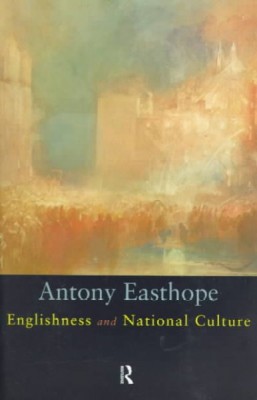| Englishness and National Culture Contributor(s): Easthorpe, Antony (Author) |
|
 |
ISBN: 0415196884 ISBN-13: 9780415196888 Publisher: Routledge OUR PRICE: $52.20 Product Type: Paperback - Other Formats Published: December 1998 Annotation: Today "nation" is probably the strongest of all forms of group identity. Over and above its expression in symbols such as flags, leaders, and cultural icons, national identity also works at a less visible, more insidious level--in the forms of discourse specific to a nation. In this compelling study, Antony Easthope takes "Englishness" as an example and argues that this national identity is deeply informed by the empiricist tradition. He employs a wide array of examples from high and popular culture, ranging from philosophical and literary works through popular journalism and aspects of the English sense of humor. "Englishness and National Culture" asserts a profound continuity running from the seventeenth century until now. Today's journalists, novelists and politicians may imagine they are speaking for themselves, yet Easthope demonstrates the "ancestral voices" speaking through them. |
| Additional Information |
| BISAC Categories: - Literary Criticism | English, Irish, Scottish, Welsh - History | Europe - Great Britain - General |
| Dewey: 942 |
| LCCN: 98035349 |
| Lexile Measure: 1480 |
| Physical Information: 0.54" H x 5.46" W x 8.49" (0.60 lbs) 254 pages |
| Themes: - Cultural Region - British Isles |
| Descriptions, Reviews, Etc. |
| Publisher Description: In this highly engaging book, Antony Easthope examines 'Englishness' as a form and a series of shared discourses. Discussing the subject of 'nation' - a growing area in literary and cultural studies - Easthope offers polemical arguments written in a lively and accessible style. Englishness and National Culture asserts a profound and unacknowledged continuity between the seventeenth century and today. It argues that contemporary journalists, historians, novelists, poets and comedians continue to speak through the voice of a long-standing empiricist tradition. |